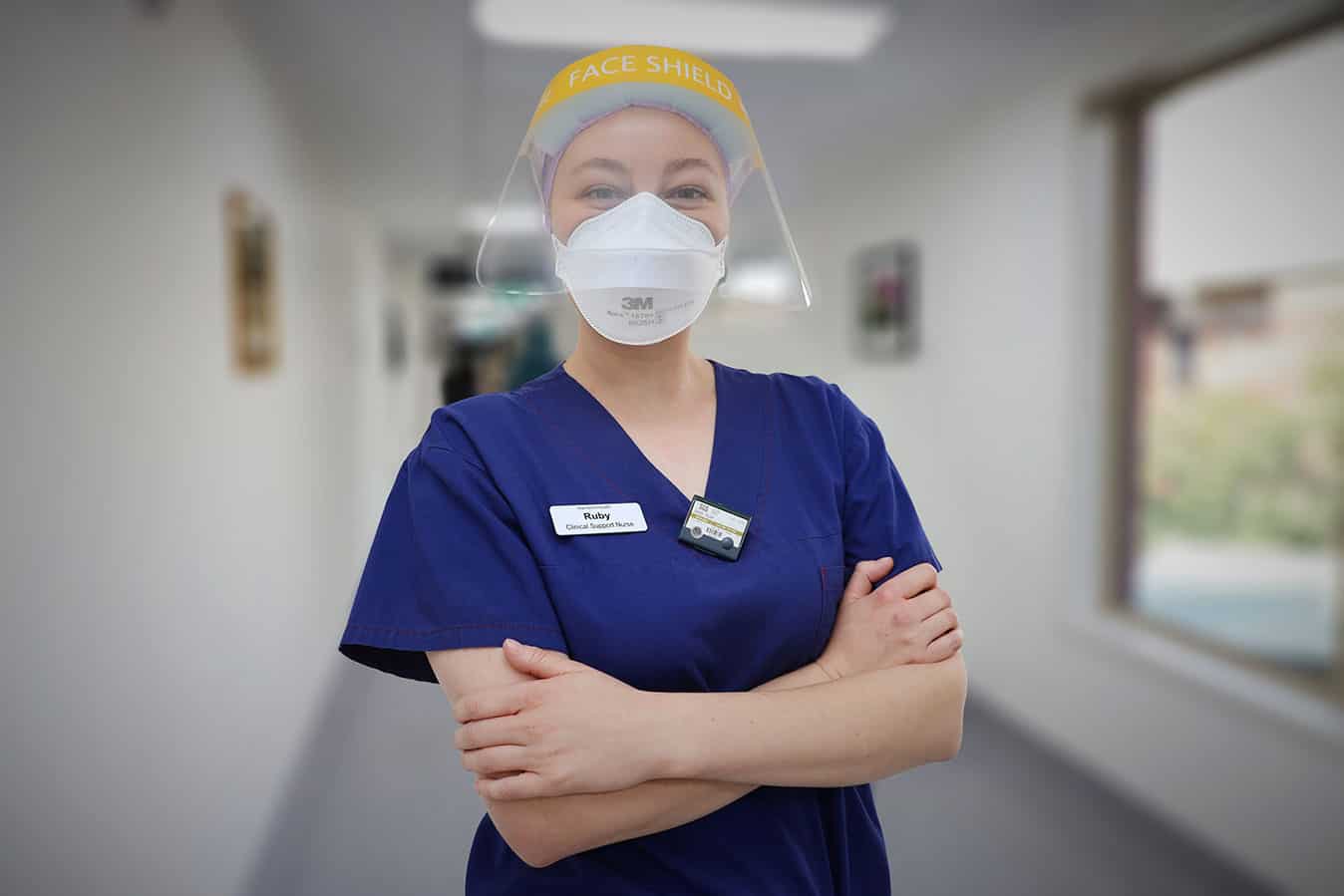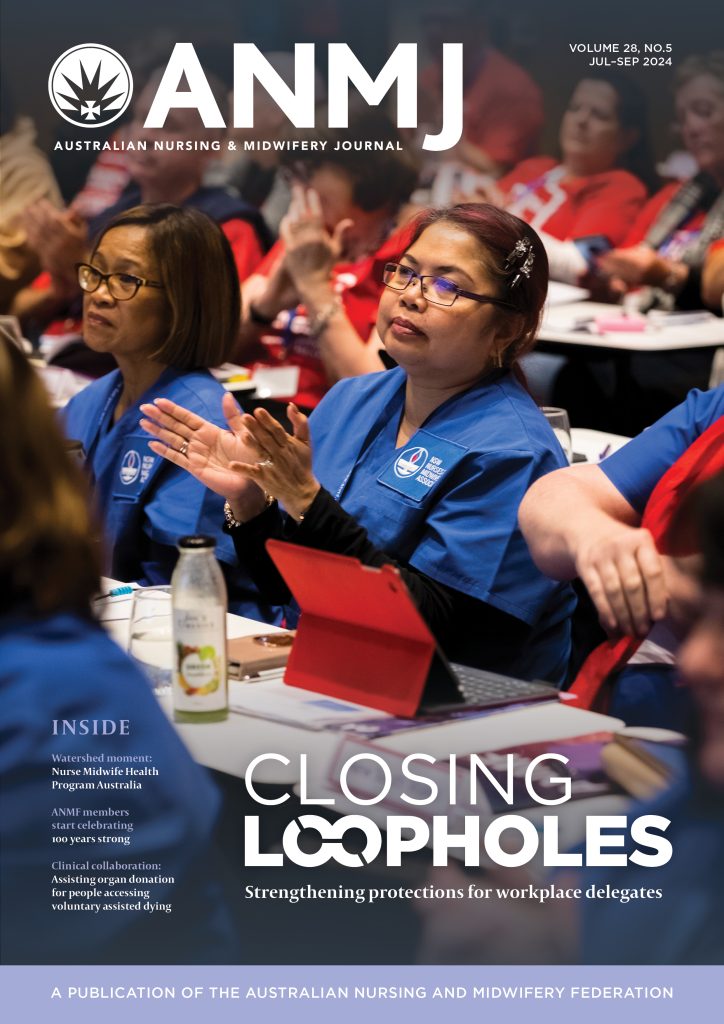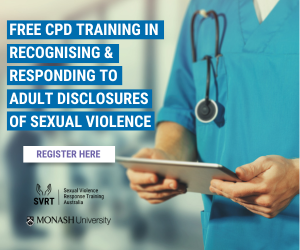Before COVID-19, nurse Ruby Dadd worked in operating theatres at Melbourne’s Northern Hospital. Now she’s caring for critically ill COVID-positive patients battling to stay alive in the intensive care unit (ICU).
When Victoria’s COVID-19 second wave peaked in late 2020, Ruby pivoted from theatre to ICU, taking on a secondment to help ease the stress and load on her overstretched colleagues as cases soared.
Ruby returned to theatre in early 2021 yet was again redeployed to ICU later in the year to help look after patients who had contracted the virus.
“I knew it would be a huge learning curve for me,” Ruby recalls.
“I was definitely anxious at the beginning, though I also thought it would be an amazing learning opportunity and allow me to obtain a whole new set of clinical skills and knowledge that I am not privy to in theatre.”
Secondments play an important role in a nurse or midwife’s professional development, allowing them to broaden their skills by experiencing other areas of the profession.
To boost her capacity to work in ICU, Ruby completed the SURGE High Dependency and Critical Care online rapid upskilling courses designed to enable RNs already working in acute areas to transition into critical care areas to meet rising demand during COVID-19.

Thrust into ICU, she undertook supernumerary shifts under the guidance of critical care nurses, who showed her how to structure a shift and outlined many of the clinical skills she would need to tap into frequently. While Ruby soon began caring for patients independently, an established ICU model meant senior critical care nurses were always on hand to support redeployed staff like her during shifts when needed.
“In my new role I am caring for ICU patients independently, most of which are patients who have presented to hospital with COVID pneumonitis and are critically unwell, requiring respiratory support with a range of non-invasive and invasive ventilation,” Ruby explains.
Shifts involve constant assessment and treatment of critically ill patients requiring varying levels of advanced life support, such as intubation.
“Some patients require full ventilator assistance, while others we’re assisting to wean off a ventilator so that they can go on to breath independently again when recovering from COVID-19.”
According to Ruby, the pandemic has infinitely changed the way nurses work and care for patients.
The new normal includes wearing full PPE to care for patients in high-risk zones, daily self-swabs, social distancing, and the sheer exhaustion of working through COVID.
Direct patient care has also suffered.
“Communication has become more arduous, with masks and face visors preventing the exchange of a smile or the ability to read a person’s lips, while plastic gowns can make working shifts very uncomfortable and tiring,” she reveals.
“Reduction in the numbers allowed in tea rooms means that catching up with colleagues, getting to debrief or provide another co-worker some support has become difficult [too]. I am grateful to be surrounded by some amazing nurses who reach out through other methods to check-in, give some encouragement and offer support.
“Visitor restrictions have meant that patients are required to spend the length of their hospital-stay alone, and family members miss out on visits, and are generally only able to get updates provided over the phone. However, we try to provide video calls with family members in ICU so that they are still able to see their loved ones during their stay.”
Ruby says theatre nurses often care for ICU patients, providing care immediately post-operation in recovery. They also routinely assist with intubations and are no strangers to ventilators, nor the insertion of invasive devices like arterial and central venous lines.
However, shifting from theatre into ICU gave her more autonomy when managing these devices and ensuring a patient is being ventilated properly and safely. ICU nurses are required to manage patients who remain intubated, and regularly access invasive devices throughout a shift.
“The transition to ICU was daunting and there a lot to learn,” Ruby says.
“I am still learning new things each shift I work in ICU, as it is such a specialised area and there is so much to learn. It helped that I had completed postgraduate studies in anaesthetic nursing, as well as the SURGE rapid upskilling courses, as it meant I did have an understanding of the different ventilator modes. I was already very comfortable with intubated patients; I just needed to apply my knowledge to clinical practice.”
“There was some support put in place to assist with the transition, such as handbooks, and staff were available to assist and be used as a resource, which made finding my feet a lot easier,” Ruby adds.
“I am grateful that some of the ICU nurses were so kind and understanding about how overwhelming it is to start out in a completely new environment and made me feel like I could reach out for support during my shifts, if needed.”
Nurses have been battling the pandemic for over two years and been stretched to their limits.
“The pandemic has been really distressing for everyone, and frontline healthcare workers have been affected greatly by it day-to-day, with constant changes to practice and procedures, the additions of PPE, redeployment to unfamiliar areas and the significant influx of patients who are critically ill with COVID-19,” Ruby says.
“Dealing with changes at work is fatiguing and stressful enough and everyone is dealing with their own challenges in their personal lives as well. It can be hard for people to have much capacity left for any change at work.”
Ruby describes the pandemic as “exhausting”, with having to deal with constant changes and redeployment to new areas draining both mentally and physically.
“I have felt burnt out numerous times throughout the pandemic, and it can feel quite hopeless not knowing if/when cases will slow down and things can start to return to normal,” she says.
“We still have a long way to go, and new variants occurring could increase cases of COVID-19 at any time, meaning our ICU could be overloaded and require more support again. After two years of dealing with the pandemic and the uncertainties that surround it, staff are tired and longing for what was pre-COVID normality.”
A Clinical Nurse Specialist and Clinical Support Nurse, specialising in anaesthetics and recovery, Ruby is likely to return to theatre soon, as long as the Omicron surge continues to fall.
Reflecting on her secondment, she suggests she has built confidence and developed skills.
“It is completely normal to feel anxious when faced with change and unknown circumstances, and I have proven to myself that I have the resilience to deal with difficult situations, adapt and take on a huge change,” she says.
“Professionally, I have learnt that I have the capacity to apply myself and my clinical knowledge and challenge myself to develop the skills required to work effectively in a highly critical clinical environment.
“I am proud of myself for having played a significant part in the fight against COVID-19, supporting my hard-working colleagues and helping numerous patients to recover from life-threatening situations.”
For nurses considering secondment, Ruby recommends giving it a go if the opportunity arises.
“Secondment is a really great way to experience a clinical area that is new to you and is a fantastic learning opportunity,” she says.
“It allows you to gain valuable skills that will carry over into other areas of nursing and can be applied to your chosen area. In particular, with a secondment into ICU, there are so many amazing learning opportunities to be taken back to your area of nursing, such as managing clinical deterioration and being involved in the use, insertion and management of a variety of invasive lines and airway devices. It is also a fantastic way to establish hospital-wide connections, which may assist with your career progression.”










One Response
Thank you Ruby for being such a healthcare hero and taking on this massive challenge, you are a better nurse and human for it.
The Northern is very lucky to have you and it’s clear you will go very far.